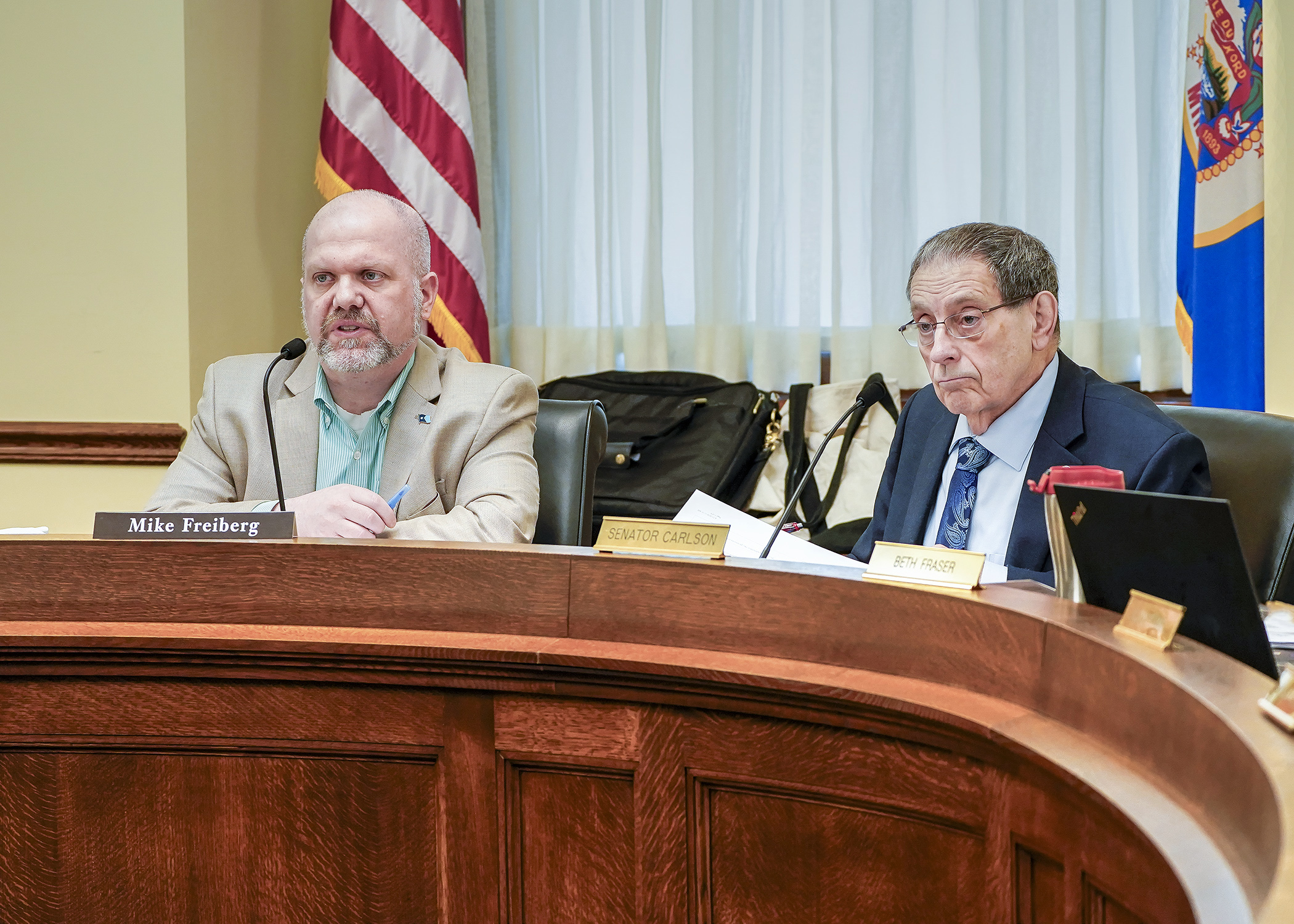House, Senate elections policy conferees begin work close, but ‘substantive differences’ remain

Six months from now — on Nov. 6 — the dust may have settled on the General Election, and we should know which candidates emerged victorious, from president to local units of government.
For now, how and where elections are held, establishing a so-called “Minnesota Voting Rights Act,” and campaign finance provisions are areas where the elections policy conference committee is tasked with finding agreement.
First steps were taken Monday morning as conferees reviewed the side-by-side comparison of HF4772 and agreed on same language. Rep. Mike Freiberg (DFL-Golden Valley) and Sen. Jim Carlson (DFL-Eagan) are the sponsors.
[MORE: Download the side-by-side]
There was no word on when conferees would get back together.
Both bodies are on board with the “Minnesota Voting Rights Act” that would prohibit state voting standards that deny or limit any citizen’s right to vote based on their race, color or language. Examples could include insufficient polling places, redistricting plans that “pack” persons of color to weaken their voting strength, and lack of language assistance for voters whose first language is not English. It would also ensure a private right of action and allow both sides a way to work together to rectify a problem without going to court.
Some of the “substantive differences” between the House and Senate regarding the proposed act include a voter suppression standard, factors for determining a violation, right of action, remedies, fees and costs.
Similarities in both bills include:
- an appointment to fill a vacancy on a school board that occurs less than two years prior to the expiration of the term is valid for the remainder of the unexpired term with no special election required;
- prohibiting certain types of “deepfake” advertisements in a campaign;
- letting a county board call a special election to fill a sheriff or county attorney vacancy; and
- beginning with the 2030 census, state and federal prisoners would count as residing where they come from rather than the correctional facility.
House-only provisions brought forth include:
- requiring designation of an additional polling place for at least one day on a postsecondary institution campus, if requested by the institution or the student government organization;
- allowing a statutory city to elect city council members by ward in certain circumstances; and
- providing legislative findings related to historical discrimination practices in Minnesota, and a public policy statement affirming that it is state policy to encourage participation in the elective franchise by all eligible voters.
Senate-only provisions include:
- counties and cities that administer elections must use a .gov domain website;
- amending the Campaign Finance and Public Disclosure Board’s authority to impose late filing fees;
- with limited exceptions, prohibit making information from the public voter information list available on the internet on a list or database and from selling or providing access to information from the list;
- establishing a separate process for presidential elector recounts;
- expanding the scope of “doxing” crimes as they apply to election officials, law enforcement officials, and the family members and household members of both types of officials; and
- committees and private organizations that mail an absentee ballot application or a sample ballot would need to clearly indicate the mailing is not an official government communication, the application or sample ballot hasn’t been included at the request of a government official, and an enclosed sample ballot is not an official ballot to be cast by the voter.
Related Articles
Search Session Daily
Advanced Search OptionsPriority Dailies
Legislative leaders set 2026 committee deadlines
By Lisa Kaczke Legislative leaders on Tuesday officially set the timeline for getting bills through the committee process during the upcoming 2026 session.
Here are the three deadlines for...
Legislative leaders on Tuesday officially set the timeline for getting bills through the committee process during the upcoming 2026 session.
Here are the three deadlines for...
Latest budget forecast projects nearly $2.5 billion surplus, but red ink down the road
By Mike Cook Three weeks before Christmas, state budget officials provided some merriment to Minnesotans. However, Grinch-like transformations lurk.
Released Thursday, the November ...
Three weeks before Christmas, state budget officials provided some merriment to Minnesotans. However, Grinch-like transformations lurk.
Released Thursday, the November ...